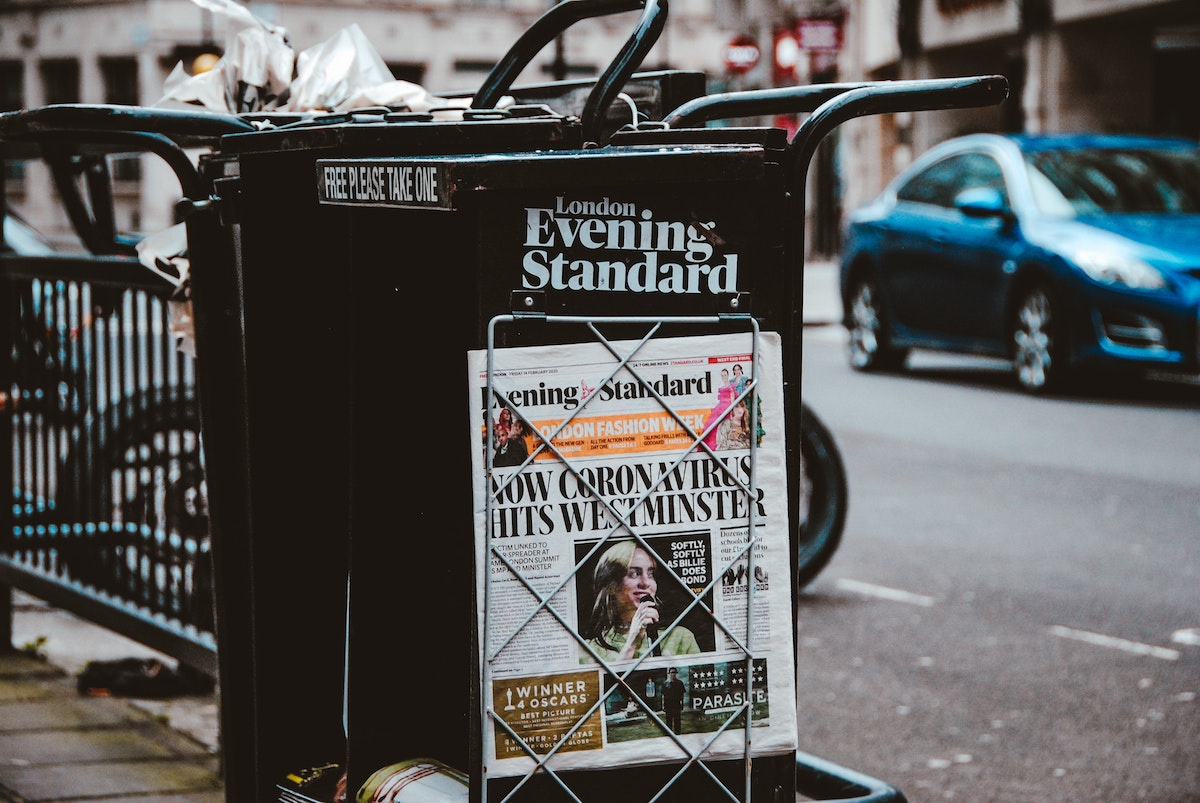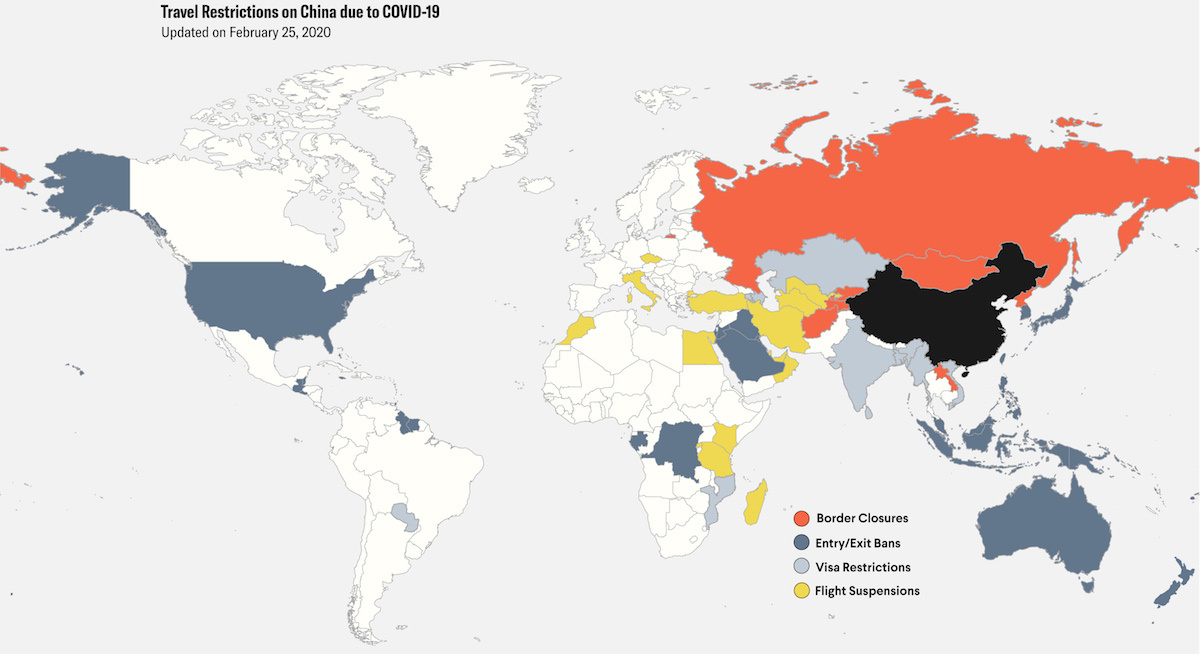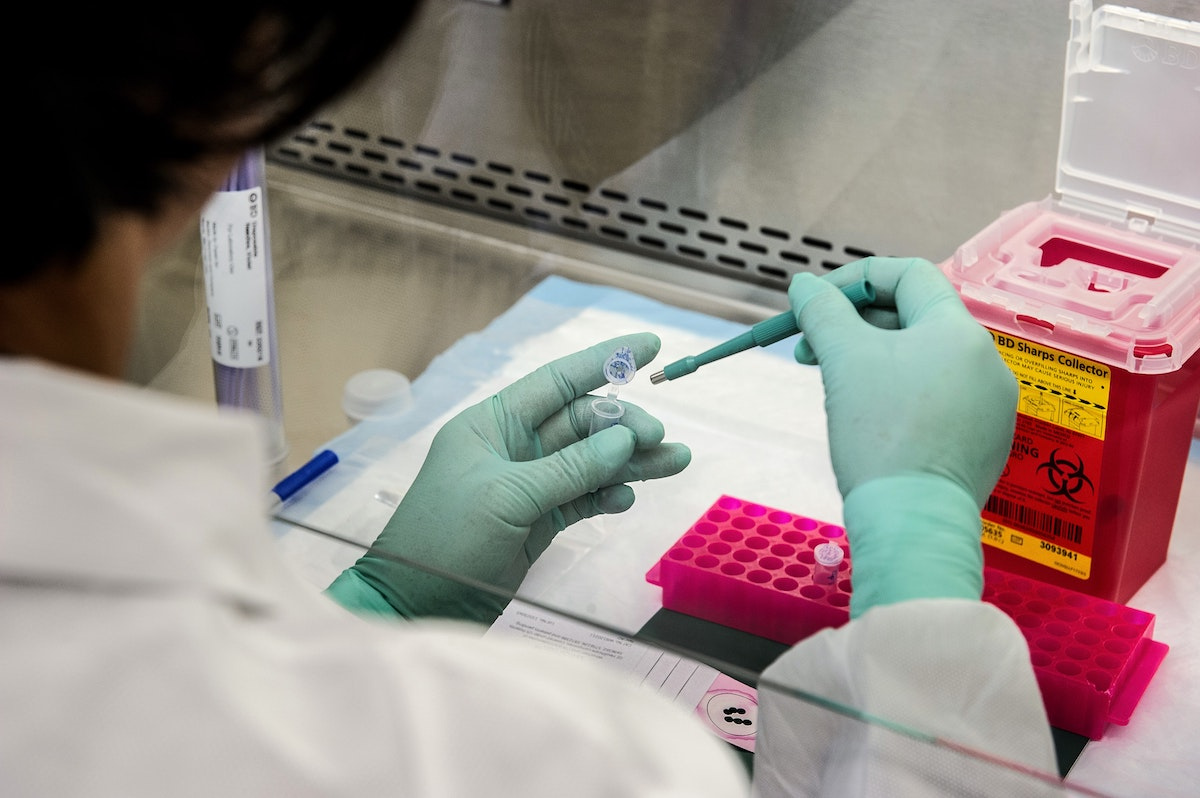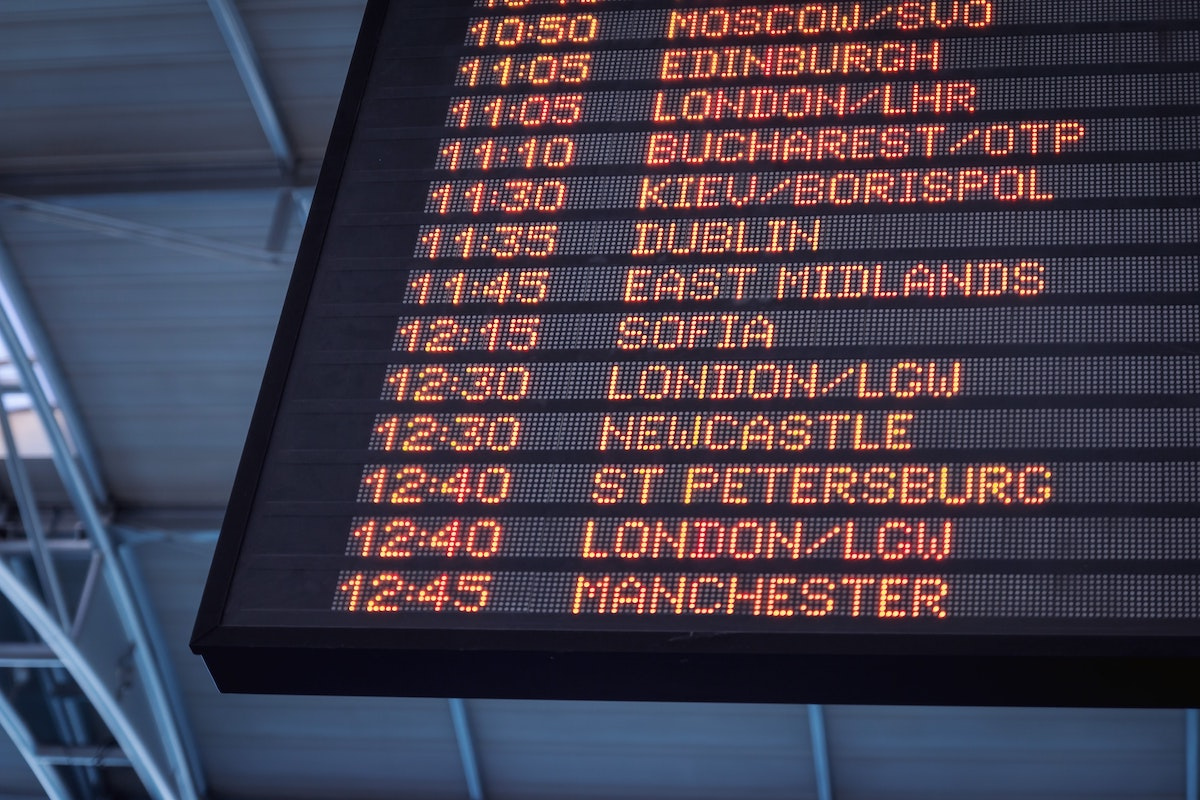If you’re currently travelling — or have plans to do so in the near future — you may be concerned about the risks associated with coronavirus Covid-19.

We’ve tracked down answers to some of the most commonly asked questions, with the latest consensus from world health and disease control experts. Their advice? There’s no need to panic or cancel travel to most destinations — with hygienic precautions and factual information, the risk to most travellers is low.

“Coronavirus” is a blanket term for a family of viruses, according to the Center for Disease Control (CDC). This latest virus, called ‘Covid-19’ was first detected in Wuhan, Hubei Province, China in December 2019 and has since spread to every continent except Antarctica.

Initial symptoms feel much like a common flu. “You'll get a fever, cough — it’s primarily a lower respiratory virus — general malaise, there may be some gastrointestinal distress,” Dr. Rebecca Katz, a professor and the director of Georgetown University’s Center for Global Health Science and Security in Washington D.C., recently told Travel + Leisure.
Most people (80%) who get Covid-19 won’t need any special treatment to recover, according to the World Health Organization (WHO).

Those who tend to develop more serious health complications such as pneumonia or kidney-related issues include the elderly and those with a pre-existing illness or health condition. Smokers can also be at higher risk of breathing complications.
So far, only between 1-2% of those with Covid-19 have died from the virus, but the precise fatality rate is not yet known, the World Heath Organisation (WHO) reports.

This is not the first time the world has weathered a coronavirus outbreak. Both Middle Eastern Respiratory Syndrome (MERS) and Severe Acute Respiratory Syndrome (SARS) were caused by the same family of viruses.
. . .
Do your research before you go. Do the countries you’re travelling through have any special policies in place to control the virus? Are they imposing quarantines?

You’ll also want to check if South Africa has recently implemented any measures to quarantine people who’ve visited countries with coronavirus outbreaks.
At present, there are currently no travel or trade restrictions for leisure or business travellers returning to South Africa, and “any passenger found to be ill or exhibiting fever symptoms on arrival will be reviewed at airport clinics,” according to reports by Traveller24.

The latest National Institute for Communicable Diseases (NICD) update (2 March 2020) stated that 87 people have been tested in South Africa but all have shown no signs of the virus. The government has trained more than 1,500 healthcare professionals to respond in the event of a Covid-19 outbreak.
But if you do have a stopover in Europe, Asia or another country with cases of the virus, be sure to take extra precautions on all public transport, including trains, buses, airports and airplanes (see number 8 below for more info).

Designed to keep travellers safe, security checks are actually one of the most common spots for spreading germs, according to a study published by researchers from the University of Nottingham and the Finnish National Institute for Health and Welfare.

“Half of all plastic trays at security checks were harbouring at least one respiratory disease such as the common cold or influenza,” said researchers, who swabbed a variety of surfaces at Helsinki-Vantaa airport in Finland during the winter of 2016.
“The trays, which are shared thousands of times over but seldom washed, collect detritus from people's pockets and belongings and were found to have more germs than even airport toilets.”

A study (published days before China’s coronavirus was first identified) found that ramping up hand-washing at 10 of the world’s most ‘influential’ airports could reduce the spread of a respiratory pandemic by 37%, reported The Telegraph newspaper in the UK.

If all airports instituted more rigorous hand-washing measures, the spread of illness could be reduced by 69%, the study added.
The takeaway? Wash your hands!
. . .
For the most part, flight cancellations have mainly impacted routes to and from Mainland China, however, some airlines are beginning to cancel flights to Iran, South Korea and Italy.
At least 62 airlines have cancelled flights beyond China as the coronavirus spreads globally, according to Business Insider.

Delta Air Lines reduced the number of weekly flights between the United States and South Korea, and suspended service to China until 30 April. Air Canada has also temporarily suspended flights to Beijing and Shanghai.
In a statement, Lufthansa Group (which includes Austrian Airlines and SWISS) said they would not accept new bookings to China until further notice, however the airlines would continue to operate flights to Hong Kong.

British Airways is reducing frequencies on its routes to South Korea, Italy, and Singapore, citing low demand, Business Insider reported. The airline said they would contact travellers directly to make accommodations for the changes.
Turkish Airlines has temporarily cancelled all flights to Italy (until further notice), as well as all Iranian cities except Tehran until at least 10 March, according to its website.

Qatar Airways is suspending service to Iranian cities and reducing its capacity on flights to South Korea, only accepting passengers with onward connections beyond Doha, according to an airline press release.
Note: if you booked a flight with Sure Travel and think you might be affected, our agents will be able to assist you with questions, cancellations, refunds or date changes. Click here for your nearest agency, or call +27 (0)861 47 48 49.

. . .
Cruise Lines International Association, which represents more than 50 cruise lines around the world formulated new ‘enhanced procedures’ with the WHO and began implementing them in early February.

They “have suspended crew movements from mainland China and will deny boarding to any individual, whether guest or crew, who has travelled from or through mainland China within the previous 14 days,” according to a CLIA statement.
Nevertheless, there have been isolated cases of coronavirus on various cruise ships, including lengthy quarantines on board. All passengers on CLIA cruises now face a mandatory health screening prior to boarding.
People who display symptoms — difficulty breathing, a fever of 38-degrees Celsius or higher, and chills — will be turned away, along with anyone who’s been in close contact with someone suspected of carrying the virus in the past two weeks.
CLIA members include international cruise lines such as Celebrity, Carnival, Crystal, Disney, Holland America, MSC, Norwegian, Oceania, Princess, Royal Caribbean International, and Uniworld Boutique River Cruises.
All cruise lines that have cancelled cruises are offering affected guests the option to receive a full refund, according to the CLIA statement.

Contact your nearest Sure Travel agency if you’ve booked a cruise with us and think you might be affected.
. . .
Different countries have different travel advisories, so your best bet is to check a cross-section of them to get an informed opinion.

We’ve checked travel advisories from the WHO, CDC, US State Department, UK Foreign Office, Government of Canada, and South Africa's NICD. This map and list of travel restrictions from the Council on Foreign Relations is another good resource.
Thus far, the CDC's most serious travel alerts (level 3) — to avoid all non-essential travel — have been issued to China and South Korea, and as of early March, Italy and Iran.

The only other country with a level 3 notice is Venezuela; CDC cites "outbreaks of infectious diseases" as well as the breakdown of the country's health-care infrastructure.
But the CDC's restrictive warnings against travel to Italy (thus far) conflict with policies of neighbouring EU countries, who have kept their borders open to Italy, and the UK’s Foreign Office is only advising voluntary self-quarantine to those who’ve spent time in the 10 affected towns in the north where Italian authorities imposed lock-downs.

“In Rome, life continues as normal with no restrictions on travel or public gatherings,” according to Italian news website, The Local — despite several people testing positive in the capital city for Covid-19 since 31 January. But further north, Venice has cancelled its popular Carnival this year to prevent further spread of the virus, and some tourist sights in Milan have shut their doors.
Travellers to Japan, meanwhile, should consider postponing all non-essential travel (level 2), according to the CDC — especially those who are elderly or have a chronic or underlying illness.

Hong Kong falls under the CDC’s “watch level”, which means people should be cautious but there is currently no need to cancel or postpone travel to the island.
Singapore, Thailand and Taiwan are listed as "other destinations with risk of community spread.” That means that although people have been infected by the virus there, “including some who are not sure how or where they became infected,” the CDC has determined Covid-19 isn’t sustained or widespread enough to merit a travel warning.

Many countries with confirmed cases of Covid-19 (such as Canada or the United States) do not currently have travel advisories from the CDC.
. . .
With the situation changing day to day, it’s difficult to pinpoint a traveller’s exact risk — a country that’s infection free today might not be that way tomorrow. As such, you’ll need to assess your own comfort and ask yourself a few questions:

“Am I at risk of developing a severe complication due to my age or current health?”
Someone who is elderly or has an immune system that's compromised due to a chronic disease will think differently about their risk of severe infection than someone who’s young and healthy.
“Would the country I’m visiting quarantine me if I happened to have been in another country where the virus is spreading?"
There is a risk you could be quarantined if a country you’re visiting suddenly decides to restrict travel in and out of its borders, says Jennifer Nuzzo, an infectious disease expert and senior scholar at the Johns Hopkins Center for Health Security told Vox.

“Airlines have been cancelling or scaling back flights, trains have been halted, and countries have been imposing sometimes arbitrary quarantines on travellers and citizens,” she explains.
“I’m more concerned about the unpredictability of the [outbreak] response at this point. It would not be fun to go to China and get stuck there somehow.”

Plus, you might be subject to additional screening or quarantines when you return home.
If you do decide to travel, keep up-to-date with the WHO, CDC and local government travel advisories, and buy travel insurance to ensure you’ll be protected from financial losses if your travel plans are interrupted or cancelled, or you need any medical care for any reason while you’re away.

How comfortable am I with uncertainty?
With the situation changing as quickly as it currently is, travellers need to be comfortable thinking about the following questions: 'Would I be okay with a two-week delay getting home if I became stuck in a quarantine situation?' 'Do I trust that the countries I’m travelling to would quarantine me safely?'

Whether or not you’ll travel in the coming weeks and months will depend on your personal level of comfort with the associated risks — if you know you’re someone who will constantly stress about getting sick (enough that you can’t enjoy your trip), you may want to postpone travel until you know things are in the clear.

On the other hand, if you reckon you’re healthy, young, and not part of the high-risk population (i.e. someone with a pre-existing illness), you will likely be able to proceed with your travels without a hitch.
Would I feel comfortable being hospitalised in the place I’m going?
Hope for the best, but plan for the worst — if you’re going somewhere with a higher risk of an outbreak (or one that already has confirmed cases within its borders), research the health system and decide if you’d be comfortable staying in a hospital should something go wrong.

Obviously, those who travel should always ensure they have the right travel insurance. Know what your policy does and does not cover, in case you need to cancel or defer travel.
Different policies cover different things, and there's usually no coverage if you pre-emptively choose to cancel a trip based on your own disinclination to travel (unless you've paid extra for a cancellation policy that allows you to call off a trip for any reason).
Sure Travel’s insurance partner, Travel Insurance Consultants (TIC), reassures that travellers are fully covered for medical expenses: “All TIC policy-holders are fully covered for emergency medical and related expenses should the traveller contract the coronavirus on a journey."

TIC adds that travellers will be covered for medical transportation and repatriation (including the repatriation of kids and travel companions), as well as burial, cremation or repatriation of remains in the very unlikely event of death whilst abroad.
If flights are cancelled by the airline or a travel ban by country or global authorities, travellers will be covered by TIC’s Unspecified Event Cancellation cover “provided they purchased their travel insurance within 48 hours of making the first payment towards their trip (whether part or in full)”.
. . .
Reduce your risk of catching Covid-19 the way you would most other colds and flus:

. . .
If you develop a fever, cough or have difficulty breathing — either while travelling or within 14 days of returning home — call your doctor immediately and report your symptoms. Do not go straight to a hospital or doctor's surgery. Until you've been tested for the virus, avoid further travel or contact with others.

. . .
Not sure about the risks or whether you’ll face potential interruptions to travel plans? Contact your nearest Sure Travel agency for additional information, or call +27 (0)861 47 48 49.